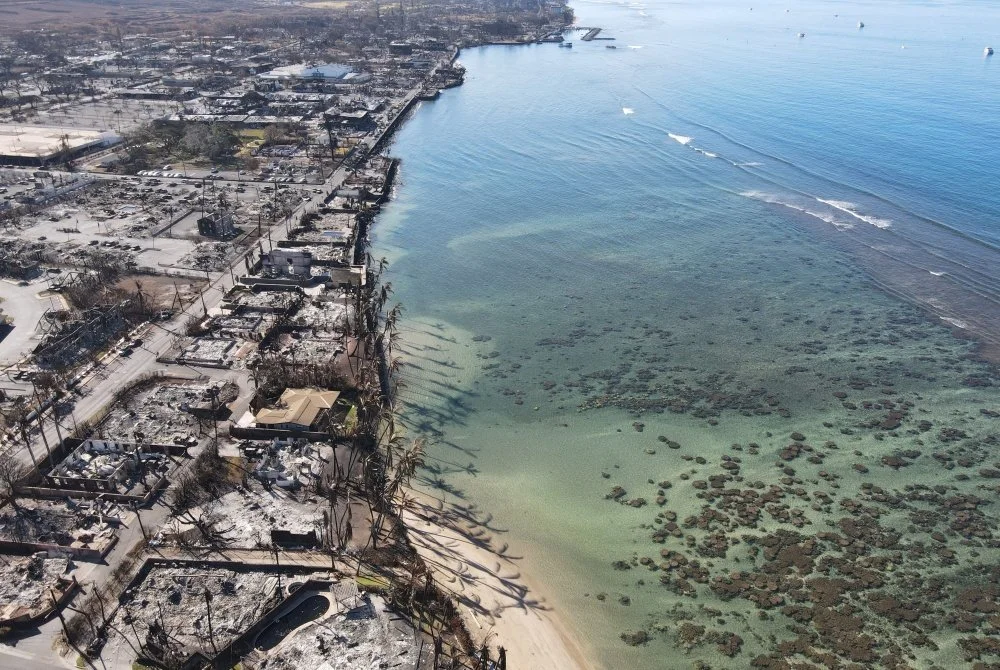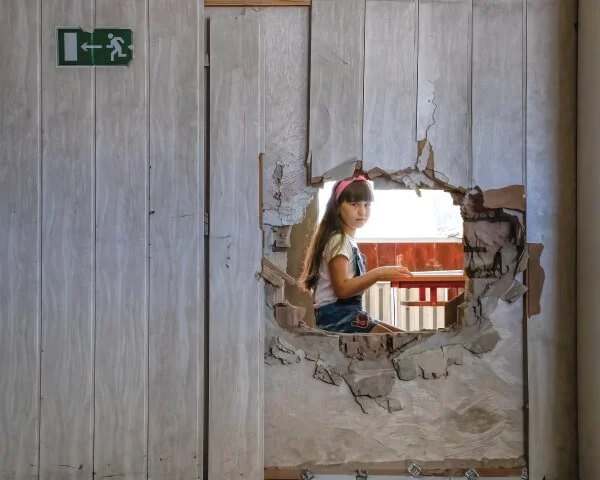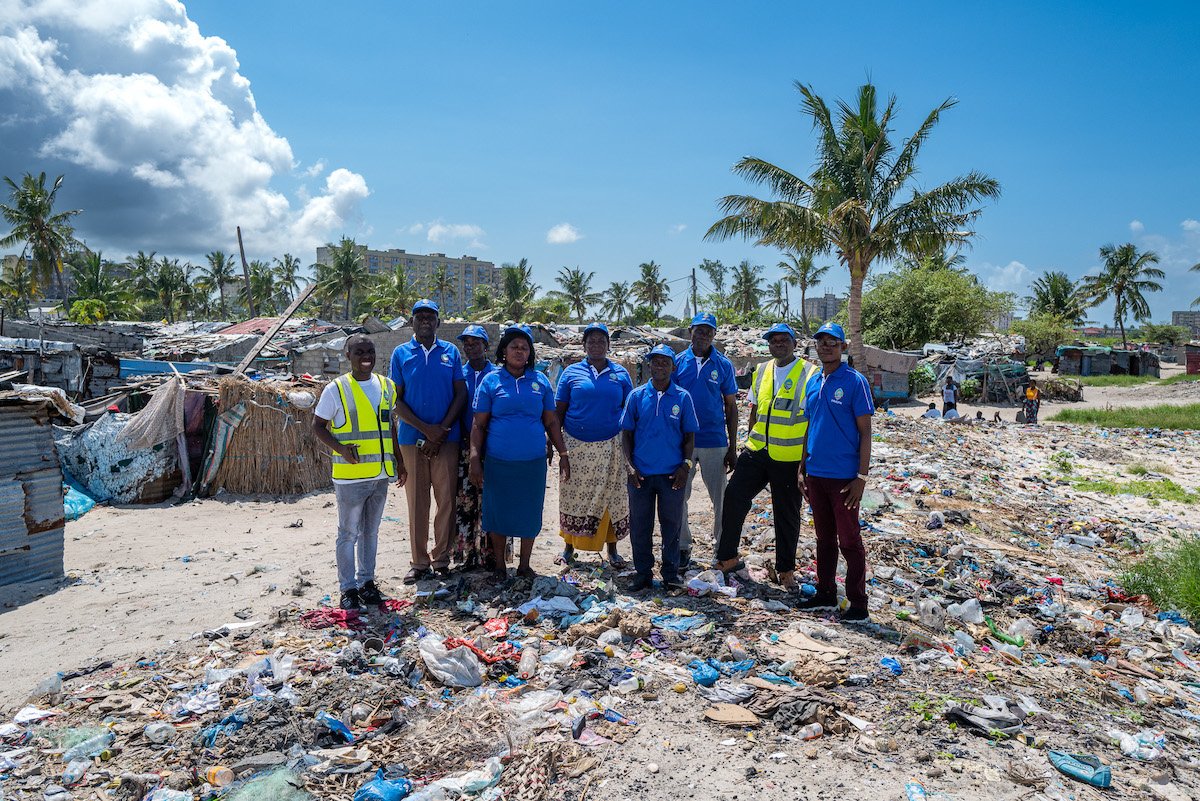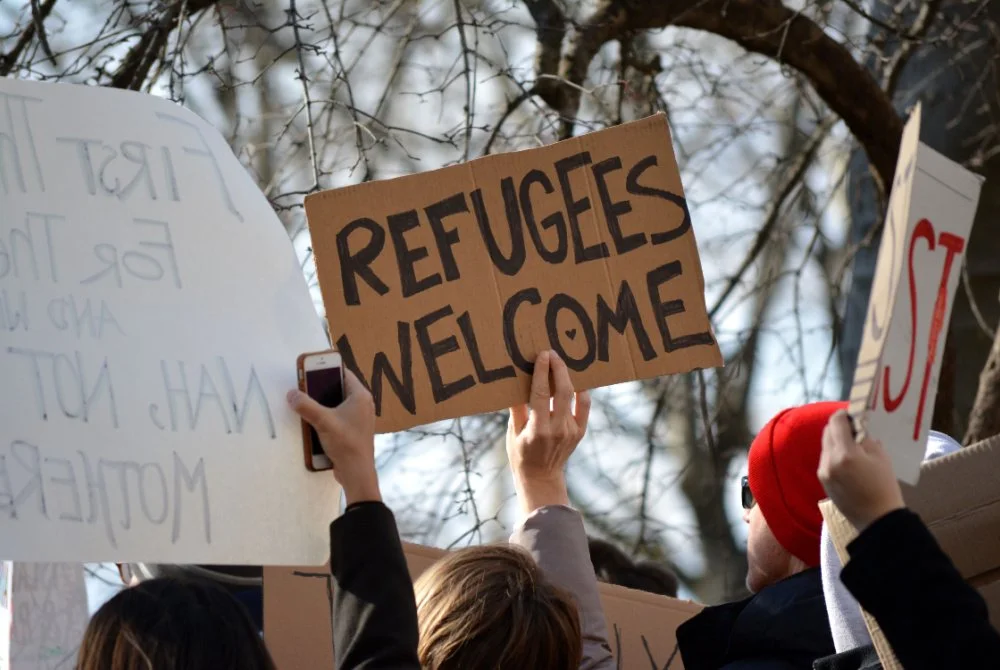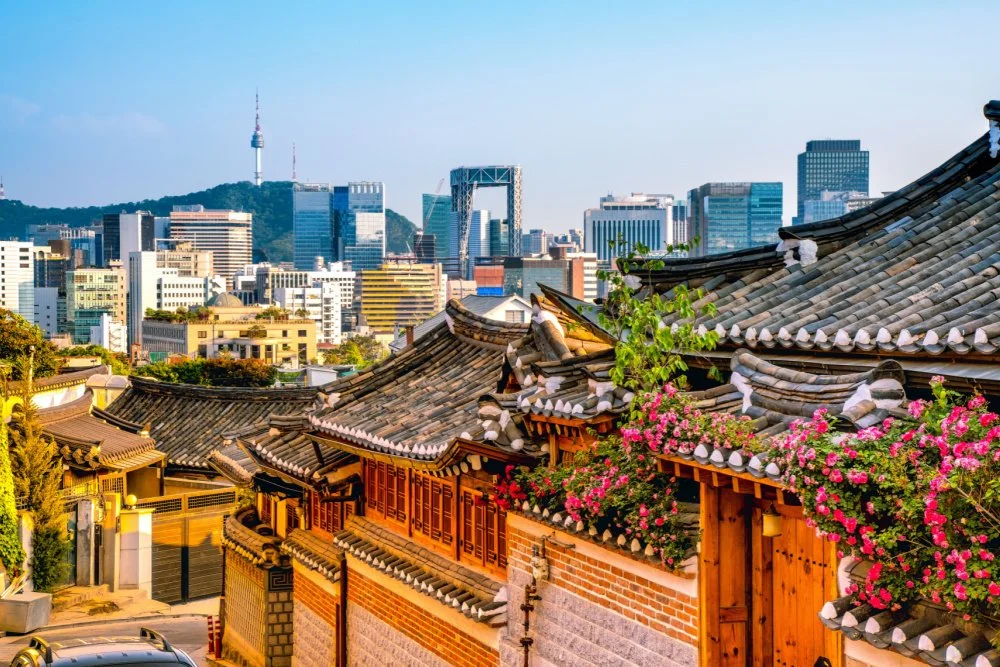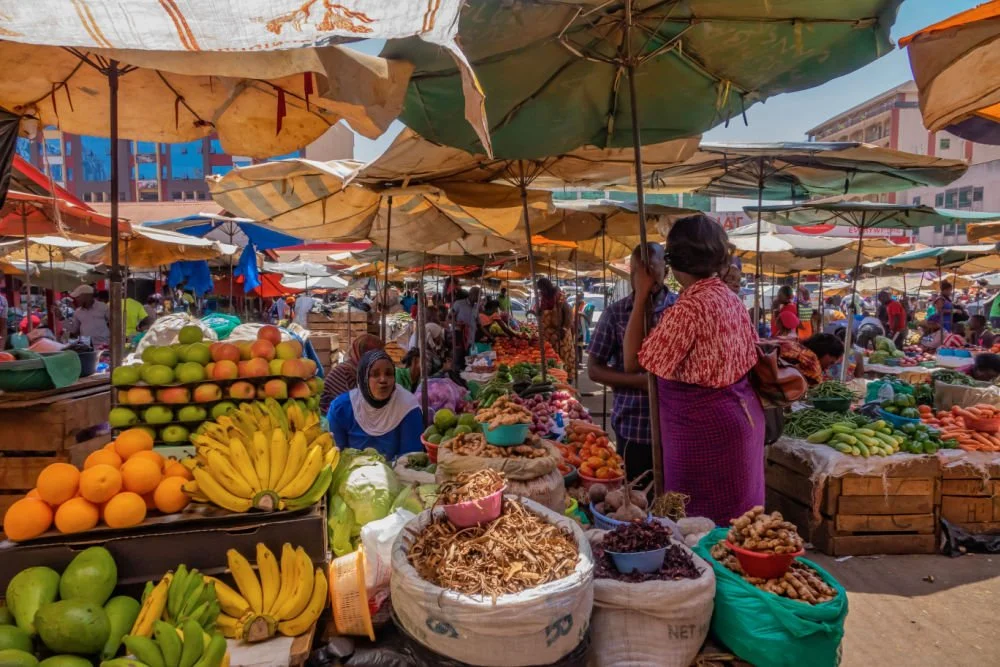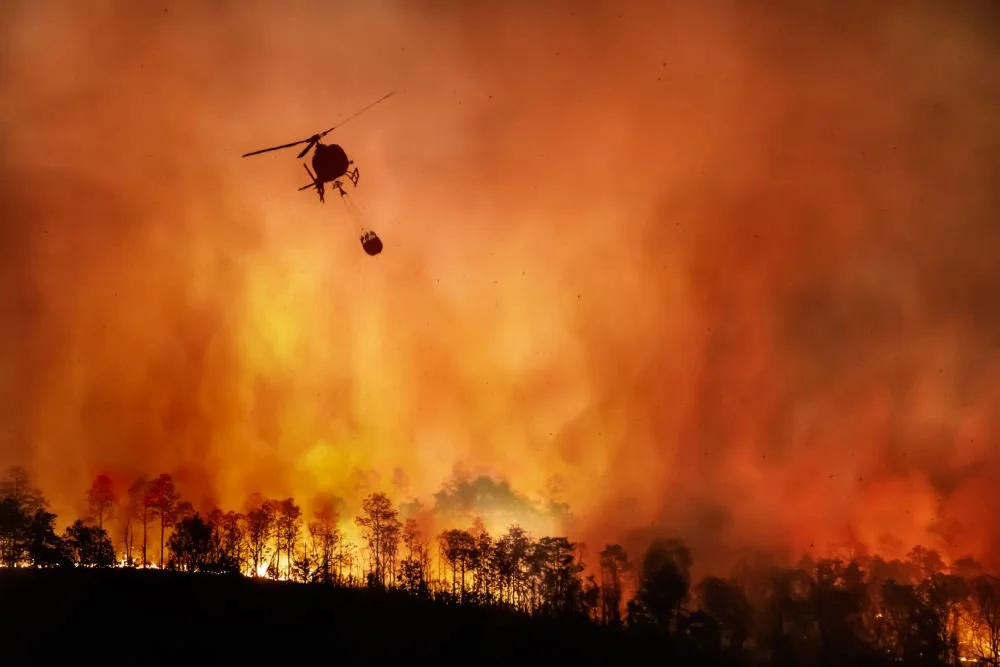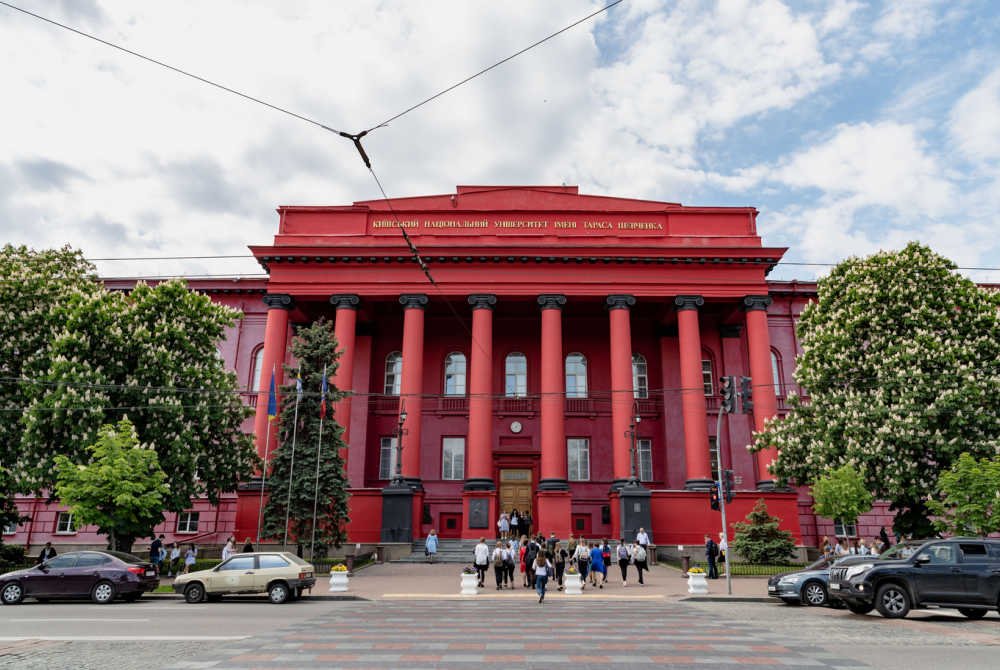Lessons from Puerto Rico: A Grantmaker Offers a Roadmap for a "Just Recovery"
/Martín Cobián of Lares, Puerto Rico, recalls the aftermath of deadly Hurricane Maria, which was blamed for 4,000 deaths and devastated the country, leaving 3 million people without power—for months, in some cases—and wiping out more than 80% of the nation’s agriculture. U.S. help, when it finally arrived, was too little and too late.
“It was so traumatic, especially for those of us who had lost loved ones,” said Cobian, an agroecologist, professor and volunteer organizer whose mother died in the storm. “It was an insane time, and what added to the misery is that the central government was basically absent. It was not helping clear roads blocked by landslides, it wasn’t bringing in food and water even though supplies were running out, and it wasn’t providing any information on what was happening. So after waiting in vain for help, neighbors organized themselves and began cleaning the streets with whatever they could find—machetes, shovels, even spoons! Food came mainly from the diaspora—from Puerto Ricans in the U.S. and elsewhere, who rushed in packages and flew in with suitcases full of canned goods. We opened communal kitchens, set up communications and somehow figured out how to get through the crisis on our own.”
Organizer Jocelyn Velázquez Rodríguez of San Juan has a similar story. “It was very sad to see people in such extreme suffering and to see how hopeful and certain they were that help was on the way from our government and from the United States. Instead, they were met by indifference and jeers,” she said. “The U.S. even blocked ships from other countries that were trying to bring us aid! That was deeply painful and depressing, but something good came out of it: People realized that they were able to organize and stay afloat—and that we have the capacity to be self-sufficient.”
Cobian and Velázquez, who spoke with Inside Philanthropy from Puerto Rico, are both leaders of social movement organizations that are partners of the Boston-based foundation Grassroots International, which was formed in 1983 as an offshoot of the relief organization Oxfam International. The foundation is supporting more than 12 organizations in Puerto Rico that are part of a social movement to rebuild and transform the country in a way that promotes social justice and self-determination, according to Jovanna García Soto, Grassroots International’s Latin American solidarity program officer.
“The difference between us and some foundations is that many philanthropic organizations are more comfortable funding ‘projects’ rather than social movements’ political agendas for change,” García Soto said. We are not an ‘aid’ or relief group. For us, social movements are the spinal cord of systemic change for a just world. We don’t see our funding as being limited to, say, a three-year project; we are committed to long-term change. In this case, it is not just a matter of undoing the damage done by Hurricane Maria. All our partners in Puerto Rico are telling us that the system is at the root of the problem. Colonialism is the problem. So we are supporting decolonization on multiple levels—food, land and energy independence, along with a solidarity economy and grassroots feminism.”
Grassroots International Executive Director Chung-Wha Hong agreed. “We call ourselves a ‘solidarity philanthropy’ group, in that we see our philanthropy as an act of solidarity with social movements,” Hong told Inside Philanthropy. “A major weakness of disaster relief philanthropy is that it is not allied with social movements. Through our funding, we are supporting the construction of a democratic infrastructure that holds government accountable.”
Mapping the road to a “just recovery”
And a new Grassroots International report underscores that there’s a lot to hold the Puerto Rican government—and the United States—accountable for. As a colony of the United States, Puerto Rico has been used for U.S. military testing with live bombs, has had its most fertile farmland turned into open-air laboratories where Monsanto and other GMO giants experiment with toxic herbicides, and has seen its island agriculture so decimated that Puerto Rico now imports 85% of its food.
In addition, many rural people have been forced to leave rural areas due to poverty and lack of access to land, jobs and resources, moving into the cities and migrating to the United States. Even many of the island’s intricate mangrove ecosystems—which are nature’s own buffer zones for violent storms and oases of biological diversity—have been destroyed by development. Nearly a half-million Puerto Ricans have migrated off the islands since 2005, and post-Maria, Puerto Ricans have seen increasing land grabs and more farmers and communities forced off their lands to make way for tourism and high tech. Such “disaster capitalism”—a phrase used by author Naomi Klein and others—is part of what the foundation is working hard to stop. “We are seeing a repeat of Katrina here in Puerto Rico, and it is urgent to save the country’s beaches, natural resources and farmland,” García Soto said.
Grassroots International recently led a delegation of donors and social movement organizers to Puerto Rico to see how a “just recovery” is playing out on the ground. Hong and several partners from social movements in Puerto Rico presented the report at the Environmental Grantmakers Association’s Winter Briefing on February 24 and 25 in San Juan, Puerto Rico, where representatives from the Ford Foundation, Rockefeller Family Fund, New York Community Trust, Greater New Orleans Foundation, Philanthropy Puerto Rico and other key members of the program committee were in attendance. The report—”Protesta y Propuesta: Lessons from Just Transformation, Ecological Justice, and the Fight for Self-Determination in Puerto Rico”—is co-authored by Grassroots International and the Movement Generation Justice & Ecology Project. It highlights more than a dozen of the Puerto Rican social movements supported by Grassroots International that helped lead the “just recovery” in the wake of Hurricane Maria and the lessons they learned. “For funders who are interested in supporting movements that are building a pathway to a decolonized, thriving and resilient Puerto Rico, this report will provide a helpful roadmap,” said Hong.
García Soto adds a cautionary note. “What’s important is that we don’t want to just rebuild what already existed, because that system harmed both the people of Puerto Rico and its environment. We want to transform it into a society that is just, ecologically sustainable, and good for both the land and the people, which are inextricably linked.”
As immigrants—García Soto grew up in Puerto Rico, and Hong in Korea—the two feel that having an immigrant’s lens has been valuable to their foundation work in other countries. “It helps to have seen first-hand the devastating impacts of U.S. military, economic and political interventions,” said Hong. García Soto adds that as part of the Puerto Rican diaspora, “I know my responsibility is to listen very carefully to our partners in Puerto Rico and to raise their voices and demands. Since I no longer live there, it’s crucial for me to have their perspective as we advocate from the United States for their rights.”
Preparing for the Next Storm
Despite the hardships Puerto Rico has faced, community activists have a strong history of David vs. Goliath victories. Besides forcing the U.S. Navy to stop testing weapons off the shores of Vieques and to withdraw entirely in 2003, they quashed plans for massive open-pit mining in the heart of the Puerto Rican mountains, which fed the watershed that serves the city of San Juan. Casa Pueblo, an independent cultural and community center in Adjuntas, Puerto Rico, began a struggle to end plans for the mega-mine in 1980. “As the leaders there said, ‘If the mines went in, it would have been game over for water in Puerto Rico,’” García Soto said.
Although it took 15 years, Casa Pueblo—which has received funding from Grassroots International since 2017—not only stopped the mining project, but won the right to manage a large forest unit, now called Bosque del Pueblo (“the people’s forest”). And in August of 2019, a popular uprising led in part by Grassroots International partners and charges of corruption forced Puerto Rican governor Ricardo Rossello to step down. “We are a small island but we make a lot of noise,” said Cobian. ”We’ve had to—otherwise we would already have been erased off the map.”
Grassroots International’s support for Casa Pueblo is an example of how one group can transform a whole community.
Since Hurricane Maria, it has built out the island’s first community-controlled microgrid. In the aftermath of the hurricane, Casa Pueblo served as a solar-powered refuge, distributing 14,000 solar lanterns, equipping 10 homes with solar power for dialysis and small refrigerators for medication, and setting up a public satellite phone so residents could wait in line to call their worried families. Now, Casa Pueblo is no longer an “energy oasis,” García Soto explains, but a solar energy hub supporting the community and protecting it in the event of another crisis. It has outfitted an additional 55 homes with solar energy, along with 89 full-size refrigerators in seven solar-powered homes, an agricultural center, an elder home, the fire station, five mini-markets, a restaurant, a pizzeria, a barbershop, two hardware stores, and two rooms of Bosque Escuela (Forest School), which now serves as a popular meeting place for education.
“But the point isn’t just solar,” García Soto said. “It’s about who produces, distributes and controls energy.” Noting that FEMA finally arrived a month after the hurricane hit, she added, “Even if FEMA had been able to get there the day after the hurricane, they wouldn’t have had the relationships, trust or understanding of the community that Casa Pueblo does to decide who to prioritize for solar installation. Just transformation and just recovery are about redistribution of resources and power to frontline communities in order to build a visionary economy for life.”
Another close partner of Grassroots International is La Jornada Se Acabaron Las Promesas (loosely translated as “the Whirlwind of Promises Is Over”). According to La Jornada general coordinator Jocelyn Velázquez Rodríguez, PROMESA—an acronym for a 2016 U.S. law that enacted political control and extreme austerity measures on Puerto Rico after the hurricane—has been disastrous.
“The name ‘promise’ is ironic,” Velázquez said. “We’ve had an avalanche of outsiders coming to take our land, as well as a move to close public schools, cut benefits and privatize our healthcare, public education and universities. What’s most important now is the struggle for our land, which is the most enduring link to our culture and heritage.” She has already seen a boost in self-sufficiency among communities, however. After deadly earthquakes devastated the southern region of Puerto Rico in December 2019 and early 2020, she said, “we were better prepared. Hundreds of emergency camps were managed by the community, not the government.”
Martin Cobian agrees that keeping Puerto Rico’s land in the hands of its people is crucial. “All the coastal communities are at risk for displacement; the so-called opportunity zones the central government recently enacted for investors are an enormous threat,” said Cobian, a volunteer leader in the western highlands of the Centro de Apoyo Mutuo Jíbaro LARES (loosely translated as the Rural Mutual Aid/Support Center of Lares), one of the many mutual aid groups funded by the foundation.
“We are very much tied to the land here—there is a strong peasant movement—and our organization is part of the food sovereignty movement,” Cobian told Inside Philanthropy. “Little by little, we are helping our archipelago produce its own food, without pollution or toxic chemicals, in ways that are harmonious with nature. We really appreciate the support from Grassroots International—they’ve been very responsive, very effective.”
With the support of Grassroots International, the center has set up a co-op agroecological nursery in the center of Lares that will produce 3,500 seedlings per month, he adds. The seedlings are being used to grow vegetables and create medicinal gardens in the community and to grow produce to sell at the local farmers market. The farms in the network will also serve as training grounds for rural youth and conventional farmers interested in agroecology. “It’s especially good because these farms can generate revenue in a region where jobs are scarce,” Cobian said. “We’re building a steady, robust network so that in the event of another disaster, we will have fresh food ready to distribute.”
This type of support is critical to farmers like Norysell Massanet of Organización Boricuá, another Grassroots International partner. Telling foundation leaders of her initial despair after the hurricane, she said, “You wake up and it looked like a bomb exploded in the area. Even if you know trees will recover, leaves will grow back, birds will return... the silence after the hurricane was so distressing. It was a [bellwether] that let us know what climate change means.
“At one point right after the hurricane, I thought to myself, ‘Wow, you’re trying to do this, grow food and manage resources, in a climate change scenario?’ I was scared, really scared. I lost my house. I was living in a tent. Every morning I would ask myself, ‘When do you stop?’ That question remained unanswered. I just started again. I just kept going.”
For her part, García Soto said that she hopes to see change during her lifetime. “During the hurricane, I was very sad and depressed because I was unable to reach my family in Puerto Rico,” she said. “But when I went back, I saw that my family and the partners we were supporting were working for their own resilience and resistance. You could see how incredibly committed they were to be the first responders and to rebuild Puerto Rico and create a more just society. And I felt such a sense of urgency to support and commit to these social movements in this very important time, with Puerto Rico’s future hanging in the balance. In talking with other funders, I told them I feel it’s our duty to stand up with the people of Puerto Rico. We hope and trust that other funders will join us in this journey. Because the right time to do it is now.”


